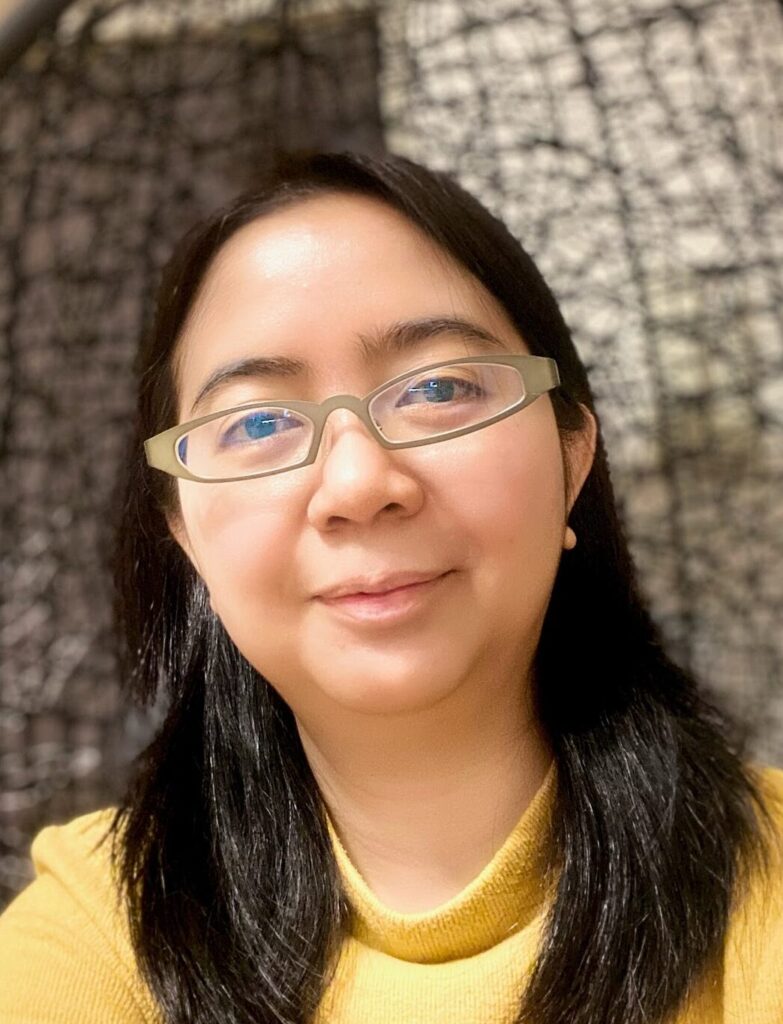
DSAI 2023: 1st International Conference on Data Science & Artificial Intelligence
Keynote & INVITED TALK Sessions
We are honored to host the following keynote and invited speakers
who will share with us the latest updates in the area of DS&AI.
KEYNOTE: Explainable Artificial Intelligence, Explained
Peter Flach, Department of Computer Science, University of Bristol, UK
Abstract: Explainable Artificial Intelligence (XAI for short) aims at giving insight in the behaviour of AI models in general and machine learning models in particular. In this talk I will give an overview of this growing field, using some recent results from my group as examples. These include explainability for time series (LIMEsegment); actionable counterfactuals (FACE); explainability fact sheets; as well as the fat-forensics.org toolkit for evaluating Fairness, Accountability and Transparency of AI systems. Finally, I will discuss the importance of properly treating probabilities in feature attribution methods such as LIME and SHAP through log-linear models.
Bio: Peter Flach is Professor of Artificial Intelligence at the University of Bristol, UK. He is an internationally leading scholar in the areas of mining highly structured data and in the evaluation and improvement of machine learning models using ROC analysis and calibration. He has also publishedon the logic and philosophy of machine learning, on the combination of logic and probability, and on knowledge-driven and explainable AI. He is author of Simply Logical: Intelligent Reasoning by Example (John Wiley, 1994) and Machine Learning: the Art and Science of Algorithms that Make Sense of Data (Cambridge University Press, 2012). His main expertise is in data-driven computational methods such as machine learning and data science, and in human-centred artificial intelligence which combines data-driven and knowledge-driven approach to AI with human-AI interaction and responsible AI.
Professor Flach was Editor-in-Chief of the Machine Learning journal, one of the two top journals in the field, for a decade (2010-20). He was Programme Co-Chair of the 1999 International Conference on Inductive Logic Programming, the 2001 European Conference on Machine Learning, the 2009 ACM Conference on Knowledge Discovery and Data Mining (KDD’09), and the 2012 European Conference on Machine Learning and Knowledge Discovery in Databases in Bristol. He was a founding board member of the European Association for Data Science (EuADS.org), was elected President in 2019, and is currently Vice-President. He is a Fellow of the Alan Turing Institute for Data Science and Artificial Intelligence, of the European Lab for Learning and Intelligent Systems (ellis.eu), and of the European Association for Artificial Intelligence (eurai.org).


KEYNOTE: Machine Speech Chain: A Deep Learning Approach for Modeling Human Speech Perception and Production with Auditory Feedback Mechanism for Low-Resource Languages
Sakriani Sakti, Japan Advanced Institute of Science and Technology (JAIST), Japan
Abstract: The development of automatic speech recognition (ASR) and text-to-speech synthesis (TTS) has enabled computers to learn how to listen or speak, imitating the capability of human speech perception and production. However, computers still cannot hear their own voice, as the learning and inference to listen and speak are made separately and independently. Consequently, the separate training of ASR and TTS in a supervised fashion requires a large amount of paired speech-text data—furthermore, there is no ability to grasp the situation and overcome the problem during inference. On the other hand, humans learn how to talk by constantly repeating their articulations and listening to the sounds produced. By simultaneously listening and speaking, the speaker can monitor her volume, articulation, and the general comprehensibility of her speech. Therefore, a closed-loop speech chain mechanism with auditory feedback from the speaker’s mouth to her ear is crucial. In this talk, I will introduce a machine speech chain framework based on deep learning. First, I will describe the training mechanism that learns to listen or speak and to listen while speaking. The framework enables semi-supervised learning in which ASR and TTS can teach each other given unpaired data. Applications of multilingual and multimodal machine speech chains to support low-resource ASR and TTS will also be presented. After that, I will also describe the inference mechanism that enables TTS to dynamically adapt (“listen and speak louder”) in noisy conditions, given the auditory feedback from ASR.
Bio: Sakriani Sakti is currently an associate professor at Japan Advanced Institute of Science and Technology (JAIST) Japan, an adjunct associate professor at Nara Institute of Science and Technology (NAIST) Japan, visiting research scientist at RIKEN Center for Advanced Intelligent Project (RIKEN AIP) Japan, and adjunct professor at the University of Indonesia. She received DAAD-Siemens Program Asia 21st Century Award in 2000 to study Communication Technology, University of Ulm, Germany and received her MSc degree in 2002. She worked with the DaimlerChrysler Research Center, Ulm, Germany, during her thesis work. She then worked as a researcher at ATR Spoken Language Communication (SLC) Laboratories Japan in 2003-2009 and NICT SLC Groups Japan in 2006-2011, which established multilingual ASR for S2ST. While working with ATR and NICT, Japan, she continued her study (2005-2008) with Dialog Systems Group, University of Ulm, Germany, and received her Ph.D. degree in 2008. She was actively involved in international collaboration activities such as Asian Pacific Telecommunity Project (2003-2007) and various S2ST research projects, including A-STAR and U-STAR (2006-2011). She served as an assistant professor at NAIST, Japan (2011-2017) and a visiting scientific researcher at INRIA Paris-Rocquencourt, France (2015-2016) under JSPS Strategic Young Researcher Overseas Visits Program for Accelerating Brain Circulation. From 2018-2021, she was a research associate professor at NAIST and a research scientist at RIKEN, Center for Advanced Intelligent Project AIP, Japan. In 2021, she then moved to JAIST and became the head of the Human-AI Communication, Co-Learning, & Collaborative Intelligence (HA3CI) Research Laboratory at JAIST. Furthermore, she is currently a committee member of the IEEE SLTC and an associate editor of the IEEE/ACM TASLP, Frontiers in Language Sciences, and IEICE. She was also involved in creating joint ELRA and ISCA SIG on Under-resourced Languages (SIGUL) and has served on SIGUL Board since 2018 and on Spoken Language Technologies for Under-resourced Languages (SLTU) Board since 2016. In 2019, in collaboration with UNESCO and ELRA, she was also on the organizing committee of the International Conference of “Language Technologies for All (LT4All): Enabling Linguistic Diversity and Multilingualism Worldwide”.
INVITED TALK: Pedagogy-infused AI for Precision Education
Patcharin Panjaburee, Faculty of Education, Khon Kaen University, Thailand
Abstract: Artificial Intelligence (AI) has been recognized by scholars as one of the challenging research issues of education. Several researchers have indicated the challenges and importance of considering individual students when designing AI in education based on their learning status, preferences, or personal characteristics. This talk aims to review the current state of AI in education and proper pedagogies. To this end, various implementations of AI-based systems and harmonization of learning strategies are introduced in this talk, such as their implementations in mathematics, science, computer science, and information literacy courses for elementary school students to undergraduate students. Moreover, the experience and thinking of conducting these studies of pedagogy-infused AI for precision education and the promotion of the research results across Thai school and university settings are presented. With my experience in conducting research on pedagogy-infused AI for precision education, this talk is expected to ignite researchers and school or university teachers devoted to AI in education to reach interesting research issues and design effective AI-based learning approaches relevant to your context.
Bio: Dr. Patcharin Panjaburee is an Associate Professor at the Division of Mathematics, Science, and Computer Education, Faculty of Education, Khon Kaen University, Thailand. Her research interests include designing and developing digital learning, such as mobile and ubiquitous learning, digital game-based learning in Computer Science and Mathematics, and designing and developing personalized e-learning systems in subject areas. She has been the principal investigator of research projects funded by National and International Grants under the research projects relevant to designing and developing personalized learning systems, digital game-based learning systems, and artificial intelligence (AI)-based approaches for game development. She received the Outstanding Research Award from Thailand’s National Research Council in 2020. Dr. Patcharin serves as an editorial board member for academic journals of technology-enhanced learning, such as Computers & Education: Artificial Intelligence, Journal of Computers in Education, and International Journal of Mobile Learning and Organisation. She has published research articles in such professional journals as Computers & Education, Interactive Learning Environments, Educational Technology & Society, British Journal of Educational Technology, Innovations in Education and Teaching International, International Journal of Mobile Learning and Organisations, Journal of Computers in Education, Knowledge Management & E-Learning: An International Journal, Journal of Computers in Education, and Computers & Education: Artificial Intelligence. Currently, she is a chair of the special interest group (SIG) of “Development of Information and Communication Technology in the Asia-Pacific Neighborhood (DICTAP)” of the Asia-Pacific Society for Computers in Education (APSCE), which hosts a pre-conference of the International Conference on Computers in Education (ICCE) on “ICT Trends in Emerging Economies (WICTTEE).”
